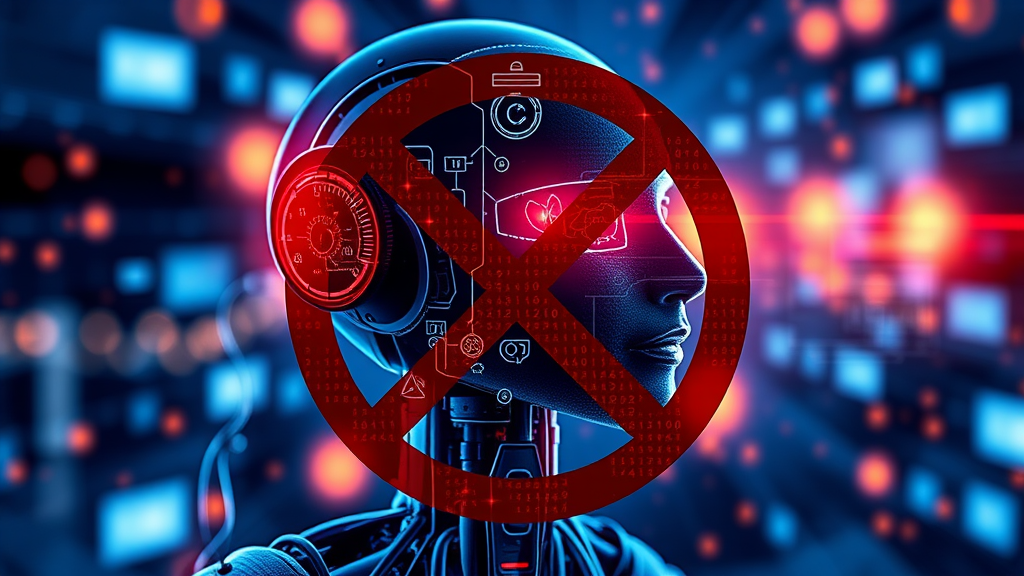Types of AI Relevant to Business
The Evolving Landscape of AI in Business
As the business world continues to evolve, the integration of artificial intelligence (AI) has become increasingly crucial. AI technologies offer a wide range of applications that can significantly enhance efficiency, productivity, and decision-making processes within organizations. In this article, we will explore the various types of AI that are particularly relevant to businesses and how they can be leveraged to drive growth and innovation.
Supervised Learning
Supervised learning is a type of AI that involves training algorithms on labeled data, allowing them to make predictions or decisions based on that information. This approach is particularly useful in tasks such as customer segmentation, predictive maintenance, and fraud detection. By analyzing historical data, supervised learning models can identify patterns and trends, enabling businesses to make more informed decisions and improve their operations.
Unsupervised Learning
Unsupervised learning, on the other hand, is a type of AI that operates on unlabeled data, allowing the algorithms to discover hidden patterns and relationships without any predetermined labels or guidance. This approach is beneficial for tasks such as customer clustering, anomaly detection, and market basket analysis. Unsupervised learning can help businesses uncover valuable insights from their data, leading to more targeted marketing strategies and improved product recommendations.
Natural Language Processing (NLP)
Natural Language Processing (NLP) is a branch of AI that focuses on the interaction between computers and human language. NLP-based technologies can be leveraged in various business applications, such as customer service chatbots, sentiment analysis, and automated content generation. By understanding and interpreting natural language, NLP-powered systems can enhance customer experiences, analyze customer feedback, and streamline communication within the organization.
Add AI with the help of experts who get it
Computer Vision
Computer vision is a field of AI that enables machines to interpret and understand digital images and videos. This technology has numerous applications in the business world, including automated quality control, inventory management, and object detection. Computer vision can help businesses optimize their supply chain, reduce errors, and enhance their overall operational efficiency.
Reinforcement Learning
Reinforcement learning is a type of AI that involves an agent (the AI system) interacting with an environment and receiving feedback in the form of rewards or penalties. This approach is particularly useful in areas such as process optimization, resource allocation, and decision-making under uncertainty. Reinforcement learning can help businesses adapt to changing market conditions, optimize their operations, and make more informed strategic decisions.
Robotic Process Automation (RPA)
Robotic Process Automation (RPA) is a technology that automates repetitive, rule-based tasks, typically performed by human workers. RPA can be integrated with various AI capabilities, allowing businesses to streamline their operations, reduce errors, and free up employees to focus on more strategic and creative tasks. RPA can be applied across multiple industries, including finance, healthcare, and customer service.
The integration of AI in the business world has the potential to transform the way organizations operate, making them more efficient, agile, and competitive. By understanding the different types of AI and their respective applications, businesses can strategically leverage these technologies to drive innovation, improve decision-making, and enhance their overall performance. As the AI landscape continues to evolve, it is essential for businesses to stay informed and adapt to these advancements to maintain a competitive edge in the ever-changing business environment.
Implementing AI Solutions for Business Optimization
Leveraging AI for Business Optimization
Add AI with the help of experts who get it
In today’s rapidly evolving business landscape, organizations are increasingly recognizing the immense potential of artificial intelligence (AI) to drive optimization and enhance operational efficiency. As AI technologies continue to advance, businesses across various sectors are exploring ways to integrate these innovative solutions into their strategies, unlocking new opportunities for growth and competitive advantage.
Predictive Analytics and Forecasting
One of the key areas where AI is making a significant impact is in the realm of predictive analytics and forecasting. By analyzing vast amounts of historical data, AI-powered systems can identify patterns, trends, and correlations that would be nearly impossible for humans to detect. This capability allows businesses to anticipate future market conditions, customer behaviors, and potential challenges, enabling them to make more informed, data-driven decisions. Predictive analytics can enhance inventory management, supply chain optimization, and even sales forecasting, ultimately leading to improved resource allocation and reduced operational costs.
Intelligent Automation and Process Optimization
Another transformative application of AI in business optimization is intelligent automation and process optimization. AI-driven automation can streamline repetitive, high-volume tasks, such as data entry, invoice processing, and customer service inquiries, freeing up human employees to focus on more strategic, value-adding activities. Additionally, AI can analyze complex business processes, identify areas for improvement, and recommend optimized workflows, leading to increased efficiency, reduced errors, and enhanced productivity.
Personalized Customer Experiences
AI is also revolutionizing customer engagement by enabling personalized experiences at scale. Through the analysis of customer data, AI-based systems can deliver highly targeted and relevant content, product recommendations, and personalized interactions, leading to increased customer satisfaction, loyalty, and ultimately, sales. Chatbots and virtual assistants, powered by natural language processing and machine learning, can provide instant, 24/7 customer support, enhancing the overall customer experience and improving customer retention.
Add AI with the help of experts who get it
Intelligent Decision Support
Furthermore, AI can serve as a powerful decision support tool, empowering business leaders to make more informed and strategic choices. By processing large volumes of data from various sources, AI-based systems can uncover insights, identify patterns, and provide recommendations that can inform critical business decisions, such as market expansion, pricing strategies, and investment allocations. This data-driven approach to decision-making helps organizations minimize risk, capitalize on opportunities, and stay ahead of the competition.
AI-Driven Risk Mitigation and Compliance
In addition to optimizing core business functions, AI can also play a crucial role in risk mitigation and compliance. AI-powered systems can analyze regulatory requirements, monitor for potential risks, and detect anomalies or fraudulent activities, enabling organizations to stay compliant and mitigate potential threats more effectively. This can be particularly valuable in industries with complex regulatory environments, such as financial services, healthcare, and the public sector.
As businesses continue to navigate the ever-changing landscape, the strategic implementation of AI solutions can be a game-changer. By leveraging the power of predictive analytics, intelligent automation, personalized customer experiences, and data-driven decision support, organizations can unlock new levels of efficiency, agility, and competitive edge. While the adoption of AI may require careful planning and integration, the potential rewards in terms of improved business optimization and long-term sustainability are undeniable.
Conclusion
Artificial intelligence has become an increasingly valuable tool for businesses across a wide range of industries. By leveraging the various types of AI, such as machine learning, natural language processing, and computer vision, companies can streamline operations, enhance decision-making, and gain a competitive edge in the marketplace.
As we’ve explored, implementing AI solutions can yield significant benefits for businesses. Machine learning algorithms can analyze vast amounts of data to uncover valuable insights and trends, enabling more informed strategic decisions. Natural language processing can automate and optimize communication processes, while computer vision can revolutionize tasks like inventory management and quality control.
Add AI with the help of experts who get it
However, the key to success lies in aligning AI implementation with a company’s specific goals and challenges. Businesses must carefully assess their needs, identify the most relevant AI technologies, and develop a comprehensive plan for integration and deployment. By taking a strategic, well-informed approach, organizations can unlock the full potential of AI and drive meaningful, long-term improvements to their operations and overall performance.
As the world of business continues to evolve, the importance of AI will only continue to grow. By staying informed about the latest advancements and proactively exploring opportunities to leverage this transformative technology, companies can position themselves for success in the years to come. By embracing the power of AI, businesses can unlock new levels of efficiency, agility, and innovation, ultimately driving sustainable growth and profitability.



